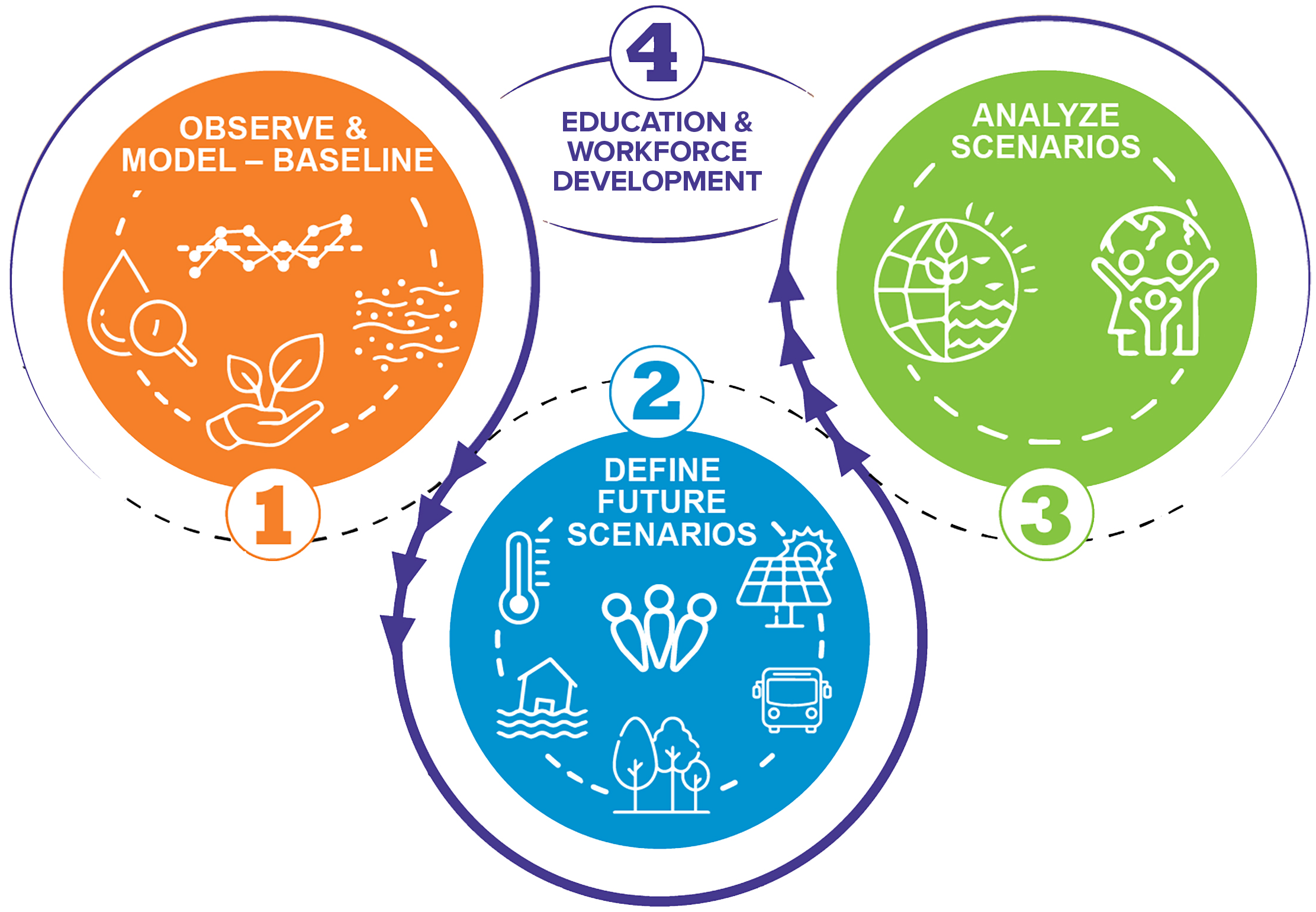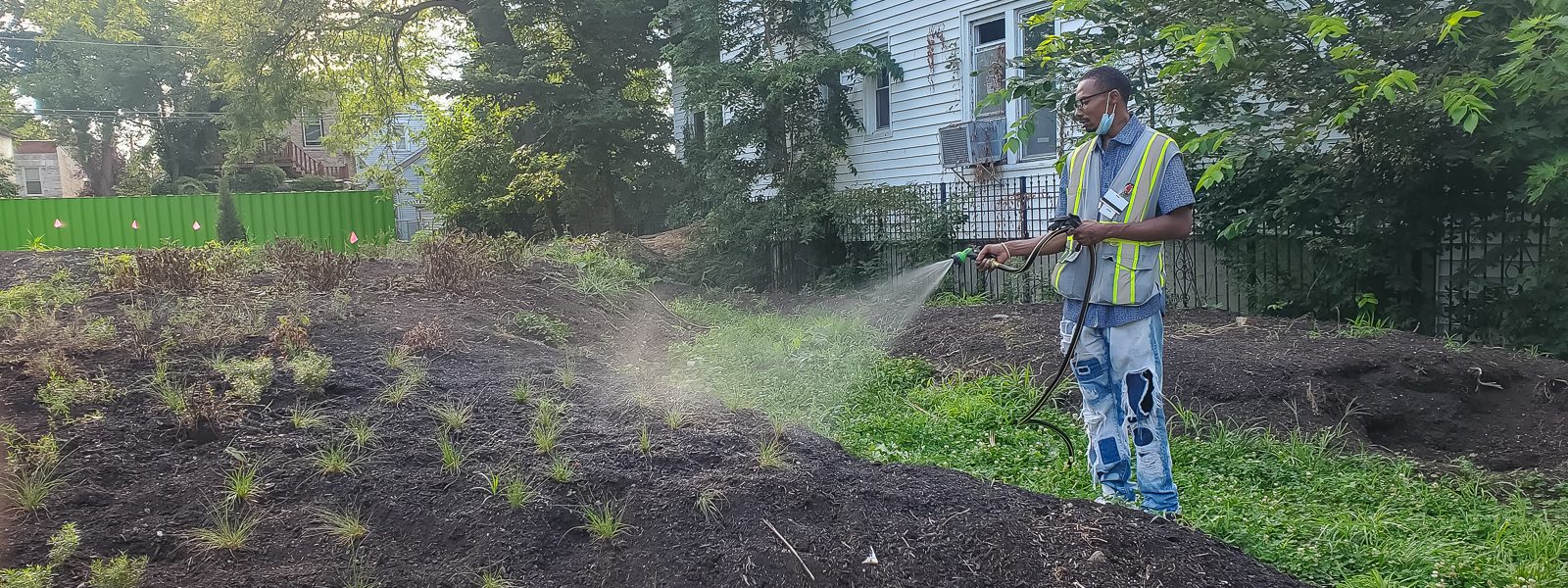Research Questions Guide Our Science 
CROCUS seeks to answer some of the most pressing questions on urban climate change. These questions drive our planning, research and collaboration with community organizations. As we continue to learn and innovate, we keep these core ideas at the center of our inquiry.
Spatial Variabilities and Influences
- How can different types of buildings and surfaces in a city trap heat and make the air around them hotter as yearly temperatures increase?
- If we use the decisions communities make about climate change in our Earth Systems Models, can we find out if people and communities are treated equally in different parts of the city?
- How do a neighborhood’s buildings, roads, and other areas impact the amount of snow or rain that falls in the neighborhood, or how often snow or rain falls? Does Lake Michigan cause more snow or rain to fall in some neighborhoods?
- How do different types of ground coverings (like grass, trees, concrete, or pavement), air pollution, and different types of neighborhood buildings influence the temperature and humidity of a neighborhood’s air?
- Do cities change climate or add to extreme heat, cold, rainfall, and snowfall throughout their regions and around the globe?
Biogeochemical Observing and Modeling
- How do the plants, animals, soil, heat, rain and snowfall in a neighborhood contribute to a city’s changing ecosystem?
- What role can plants play in using ground water and lowering a neighborhood’s flood risks?
- How much area and time are needed for trees and plants to reduce heat and flood risks in a neighborhood?
Equitable Benefits
- How do nature-based solutions, such as planting trees or installing plants on rooftops in a neighborhood, reduce excessive heat, flooding, and other community problems? Will these nature-based solutions meet the needs of diverse communities?
- How can community members and researchers work together to share knowledge? Will working together help everyone understand the complex challenges and goals of people who live in urban neighborhoods?



